The failure of the Economic Community of West African States (ECOWAS) to follow through with its recent threat of military intervention to restore constitutional order in Niger, the fourth of its member States to have descended into a military dictatorship within the last four years is embarrassing enough. But the regional organisation faces even greater reputational damage from its lethargic response to disturbing “political and constitutional coups” in the region.
Until a decade ago, ECOWAS boasted a good track record in political conflict/crisis prevention, management, and resolution, including international acclaim for ending the civil wars in Liberia and Sierra Leone, followed by the restoration of peace in other member States such as Cote d’Ivoire, Guinea, Guinea Bissau, and Niger.
These successes were achieved through a combination of sanctions and preventive diplomacy relying on regional instruments and protocols, which have been adopted by other organisations, such as the African Union.
For instance, the 1999 ECOWAS Protocol Relating to the Mechanism for Conflict Prevention, Management, Resolution, Peacekeeping (the Mechanism), and the 2001 Supplementary Protocol on Democracy and Good Governance have been used to stabilise the region progressively and incrementally and promote democratic governance, especially by applying the policy of ‘Zero Tolerance’ to power obtained or maintained by unconstitutional means.
Between 2009 and 2010, three member States – Guinea, Niger and Cote d’Ivoire were suspended for violating the 2001 Protocol. Specifically, in 2009, the tenure elongation plan of the then Niger President Mamadou Tandja, was halted and he was forced to reverse his dissolution of the country’s parliament.
Also, the post-election crisis in 2010 and subsequent civil war 2011-2012 in Cote d’Ivoire were eventually resolved with ECOWAS inputs to international efforts.
The regional organisation also bluntly refused to deploy observers to the 2011 ‘sham’ elections conducted by the then Gambian dictator Yahya Jammeh. Citing the absence of a conducive democratic environment and level-playing field reported by its fact-finding Mission to the Gambia, ECOWAS refused to recognise the results of that election.
Jammeh went ahead with another election in 2016, but the post-election violence eventually resulted in his forced exile in Equatorial Guinea in 2017, through an ECOWAS-led international intervention. That crisis could have been avoided if the international community had supported ECOWAS’ principled stance in 2011.
Set up in 1975 primarily to foster economic development and regional integration, peace and security were injected into the ECOWAS regional agenda because of the myriad political conflicts and governance challenges, including civil wars that followed the formation of the regional organisation.
To their credit, ECOWAS leaders of that time responded promptly and with urgency, often militarily, to halt the slide of the region into anarchy, and to salvage the organisation’s credibility, through the rigorous application of normative and institutional frameworks to support the aspirations of the peoples based on shared values of democracy, the rule of law, human rights, and market economy.
Unfortunately, those aspirations and ECOWAS’ glory appear to have receded into the distant past, no thanks to leadership failures at national and regional levels.
Granted that the political environment has since evolved charactered by different hues of insecurity, especially terrorism, religious extremism, asymmetric warfare, and global economic recession, but it also behoved ECOWAS leaders to think outside the box.
Instead, the regional organisation has become largely ineffective because its leaders have allowed the lack of principle to gain foothold over time, due to their pursuit of personal ambitions, greed, corruption, authoritarian tendencies, and insensitivity, with regional protocols completely ignored on observed in breach.
Four ECOWAS member States – Mali, Guinea, Burkina Faso, and Niger, are presently under military dictatorships after several coups, with three of the countries Mali, Burkina Faso, and Niger, forging a coalition and Defence Alliance, that falls short of their withdrawal from ECOWAS.
The collaboration by the four suspended member States, that are also enduring ECOWAS-imposed sanctions, could be part of their “survival strategy.”
Even so, ECOWAS cannot dismiss such unwholesome developments or the resurgence of coups in the region, with two attempts each reported in Guinea Bissau and Sierra Leone, resulting in simmering political tensions in both countries following post-election disputes.
The opposition in Sierra Leone has rejected the results of the June presidential election after the national electoral Commission declared sitting President Julius Maada Bio re-election with 56.17% over his opposition party rival Samura Kamara.
Also troubling is President Umaro Sissoco Embalo’s decision to dissolve Guinea Bissau’s opposition-controlled parliament. This followed violence that greeted last week’s gunbattle which the government called an ‘attempted military coup’ after the legislature condemned the clashes between the National Guard and the State armed forces.
Meanwhile, the Bissau government has remained silent on the casualty figure and the number of arrests, adding to the dozens that were rounded up after the February 2022 reported coup attempt in that country.
Many analysts consider some of the foiled coup reports as a ploy by the governments involved to silence the opposition.
More importantly, Embalo’s dissolution of the parliament is in blatant violation of Article 64 of Guinea Bissau’s Constitution and therefore, “a constitutional coup.”
The former Portuguese colony operates a semi-presidential system, which emphasises separation of powers with the majority party or coalition, in this case, the opposition PAIGC in control of parliament, government and the National Guard, while the National armed forces report to the President.
Announcing the latest parliament dissolution in a presidential decree, the second time in two years after the reported coup attempt in February 2022, Embalo, who is also accused of operating a private army, said a new election would be held on an unspecified date. However, the country’s constitution forbids the dissolution of parliament 12 months before an election.
Guinea Bissau is one of the countries where ECOWAS has invested large human and financial resources over the years in peacekeeping and stabilisation.
An ECOWAS military Mission is in place in the country. It was only sent back in February 2022 following the withdrawal in 2020 of a larger Mission, ECOMIB, deployed in 2012.
Also, recently in Senegal, which will hold a crucial presidential election in February 2024, President Macky Sall, has gone on “political rampage,” by proscribing an opposition party and sacking members of the national electoral Commission, a move considered “a political coup.”
It is not only ironic but inconsistent that ECOWAS, which is usually quick to condemn military coups has remained silent on the political and constitutional coups threatening peace and security in Guinea Bissau and Senegal, and by extension, the region.
ECOWAS’ response has equally been timid to the developments in Sierra Leone, where the government is reportedly targeting opposition members in the aftermath of two reported coup attempts from September.
Military rule is an aberration in the Modern World, and military coups cannot be justified, neither should “political, constitutional, ballot box, or human rights coups.”
ECOWAS member States must realise that there is strength in unity, but individually, they will be preyed upon by foreign powers be they from Europe, the Americas, Russia, or China.
There is no doubt that ECOWAS and its present leaders have derailed on the dreams of the organisation’s founding fathers. They, therefore, owe themselves and more than 400 million citizens of the community a constitutional duty and responsibility to right the wrongs and guarantee good governance, based on democratic principles and international best practices.
The ECOWAS Commission management and regional leaders must not allow the sacrifices of past leaders to be in vain.
Nigeria, the regional powerhouse, current Chair of the ECOWAS Authority, and the organisation’s largest financial contributor has to step up and lead by example.
Democracy may not be a panacea, but through credible elections, it provides the necessary choice for transition to normalcy, particularly in West Africa’s fragile and politically restive environment.
As noted by the famous British Prime Minister Sir Winston Churchill in 1947:
“Many forms of government have been tried in this world of sin and woe. No one pretends that democracy is perfect or all-wise. Indeed, it has been said that democracy is the worst form of government except all those other forms that have been tried from time to time.”
A former ECOWAS Commission President Ambassador James Victor Gheho also affirmed during a presentation in Chatham House, London in 2011: “We made a conscious choice with the genuine belief that while even the most credible elections may not produce good leaders, at least they offer the electorate the opportunity to remove bad ones. ECOWAS, therefore, encouraged Member States to interrogate and refocus their style of governance.”
Paul Ejime Is A Global Affairs Analyst And Consultant On Peace & Security And Governance Communications





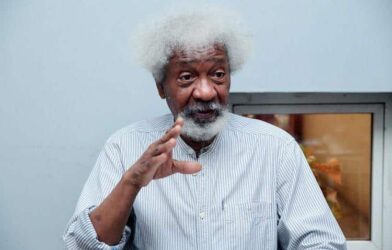
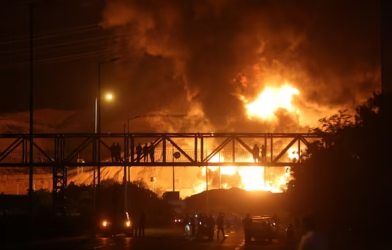
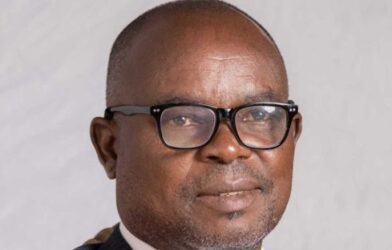
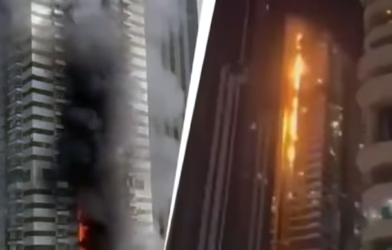
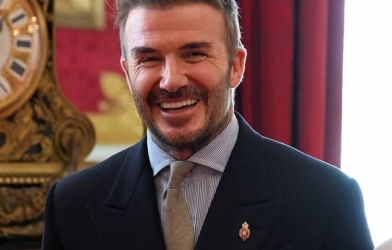
Comments are closed